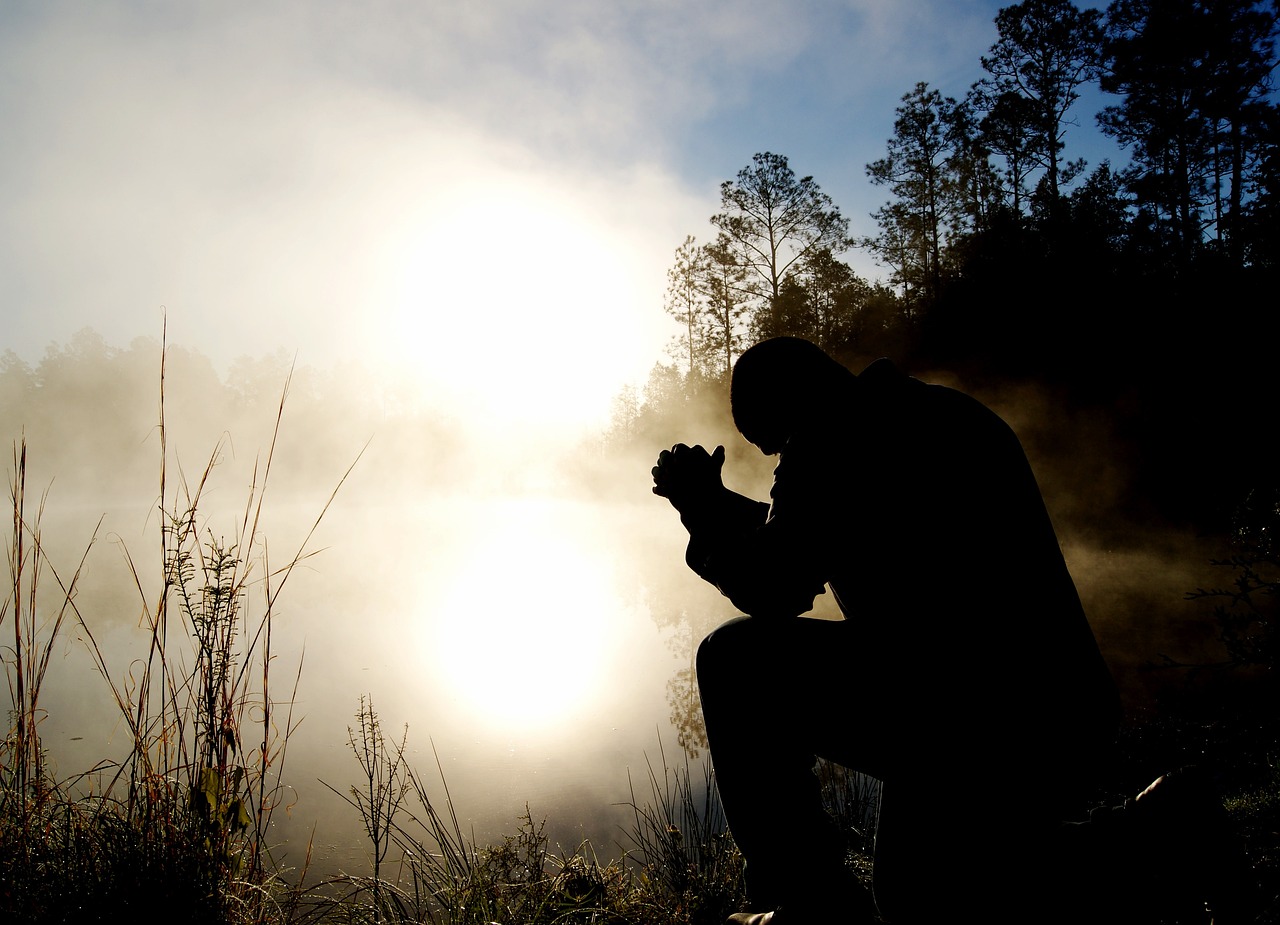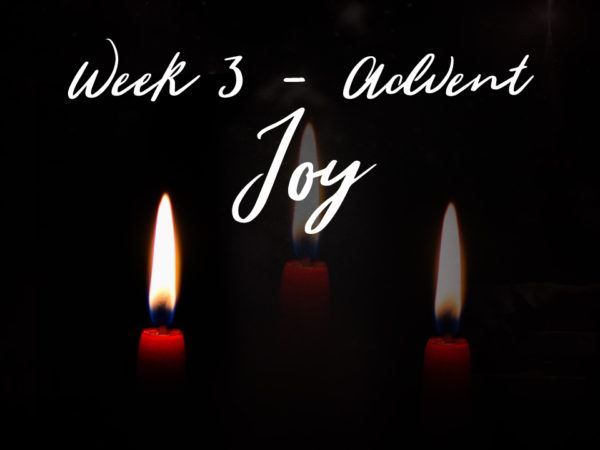Text: Genesis 33:1-12
“No one has ever seen God; but if we love one another, God lives in us and his love is made complete in us.” —1 John 4:12
Years ago, Dr. Francis Schaeffer wrote a book titled, No Little People. As the title suggests, the thesis of the book is that there are no insignificant people. The Bible teaches this truth, as every person was created in the image of God.
One of the ways we are made in God’s image is seen in our capacity and need for relationship. Every person has this innate hunger to be known, loved, and accepted. Esau was no different, but for whatever the reason, Jacob seemed to view Esau less like a brother and more like an obstacle standing between himself and success. Esau was in the way and needed to be outfoxed for Jacob to get what he wanted out of life.
Twenty years have passed since Jacob cheated Esau of his birthright and robbed him of their father’s blessing. Jacob was likely haunted by the thought of how and when Esau would settle the score. After all, Esau had threatened to kill him. The easiest path would’ve been to run as far away from Esau as possible, but God had a different plot to the story. It involved reconciliation and redemption, because that is at the core of what Jesus came into this world to accomplish through every believer (2 Corinthians 5:17-21).
As we saw in last week’s devo, God brings the fight to Jacob on a dark and dusty road where he is all alone, and a feisty wrestling match ensues throughout the night. Jacob could’ve tapped out and fled rather than face the truth about his own flawed nature as it was exposed and laid bare before a holy God, but let’s give him some credit. He stayed in the fight throughout his dark night of the soul and was conquered by God’s grace. When the day breaks, so does Jacob. He is broken with humility. Instead of running on self-reliance like he had always done, he is now limping with a God-reliance.
Jacob cannot get to the fulness of God’s promised blessing without going through the valley of reconciliation. He must face Esau, and as the moment of truth arrives, Jacob will not only walk in a different way, but he will see his brother in a different light. When Esau sees Jacob, he runs to embrace him with a bear hug, throwing his arms around Jacob’s neck. They weep together. Forgiveness and mercy prevail. Jacob then offers Esau a gift and makes a powerful statement—it’s the kind of revelation that should change the way we all approach reconciliation. Jacob says:
“For to see your face is like seeing the face of God, and you have accepted me.” (Genesis 33:10)
In the past Jacob had been a conniving schemer, seeing his brother as nothing more than a superficial pawn to be manipulated for selfish gain. Now, rather than seeing his sibling rival as an obstacle to be overcome, Jacob sees the very image of God in the face of his brother. Esau is no longer just an obstacle; he is essential to God’s bigger picture of redemption in relationships, necessary to Jacob’s spiritual growth, and vital to the future blessing of their entire family.
How might it change us, and the trajectory of our lives, to see God’s image in every person—especially in those with whom we have had difficulty, strife, tension, or rivalry? It’s so natural to see our own need for mercy yet not see others through the same lens of grace. Whether it’s a difficult family member, an annoying coworker, a belligerent neighbor, an egotistical classmate, a political opponent, a social outcast, or even a personal adversary—the more we see the image of God underneath the surface of each person, the more fitted we will be as agents of reconciliation in this broken world, and the more blessed we will be as peacemakers in it (Matthew 5:9).
Jesus is so adamant about us seeing God’s image in others that he gave this stunning command about how it affects our worship: “So if you are offering your gift at the altar and there remember that your brother has something against you, leave your gift there before the altar and go. First be reconciled to your brother, and then come and offer your gift” (Matthew 5:23-24).
Where are you going to look for the face of God in others this week? Think about that as you seek to abide in Him.
PRAYER
God, life is messy. Relationships are difficult. We are all prone to offenses—being offended as well as doing the offending. It is humbling to recognize that I have been a difficult person in someone else’s life. As much as I would want mercy from those I have wronged, I must be willing to extend that same measure of mercy toward those who have offended me. Help me to see the face of God in others and to love them the way I have been loved by you. Holy Spirit, teach me how to flesh out the ministry of reconciliation with others and to live in your peace, as far as it depends on me. In your name, Amen.
Questions for Personal Reflection or Group Discussion
- Did you have any sibling rivalries growing up? If so, what do you think was at the root of those rivalries?
- We all want to receive mercy, but why do we find it harder to extend mercy to others?
- What lessons can we learn from Jacob and Esau’s reunion in Genesis 33?
- How we approach reconciliation says a lot about our maturity in Christ. Why is it important to God, and others, that we live as peacemakers?
- In whom do you need to see the face of God this week? How will you pray for them? How will you look at them through the lens of God’s grace and mercy? Is there reconciliation you need to flesh out?





Text: Genesis 33:1-12
“No one has ever seen God; but if we love one another, God lives in us and his love is made complete in us.” —1 John 4:12
Years ago, Dr. Francis Schaeffer wrote a book titled, No Little People. As the title suggests, the thesis of the book is that there are no insignificant people. The Bible teaches this truth, as every person was created in the image of God.
One of the ways we are made in God’s image is seen in our capacity and need for relationship. Every person has this innate hunger to be known, loved, and accepted. Esau was no different, but for whatever the reason, Jacob seemed to view Esau less like a brother and more like an obstacle standing between himself and success. Esau was in the way and needed to be outfoxed for Jacob to get what he wanted out of life.
Twenty years have passed since Jacob cheated Esau of his birthright and robbed him of their father’s blessing. Jacob was likely haunted by the thought of how and when Esau would settle the score. After all, Esau had threatened to kill him. The easiest path would’ve been to run as far away from Esau as possible, but God had a different plot to the story. It involved reconciliation and redemption, because that is at the core of what Jesus came into this world to accomplish through every believer (2 Corinthians 5:17-21).
As we saw in last week’s devo, God brings the fight to Jacob on a dark and dusty road where he is all alone, and a feisty wrestling match ensues throughout the night. Jacob could’ve tapped out and fled rather than face the truth about his own flawed nature as it was exposed and laid bare before a holy God, but let’s give him some credit. He stayed in the fight throughout his dark night of the soul and was conquered by God’s grace. When the day breaks, so does Jacob. He is broken with humility. Instead of running on self-reliance like he had always done, he is now limping with a God-reliance.
Jacob cannot get to the fulness of God’s promised blessing without going through the valley of reconciliation. He must face Esau, and as the moment of truth arrives, Jacob will not only walk in a different way, but he will see his brother in a different light. When Esau sees Jacob, he runs to embrace him with a bear hug, throwing his arms around Jacob’s neck. They weep together. Forgiveness and mercy prevail. Jacob then offers Esau a gift and makes a powerful statement—it’s the kind of revelation that should change the way we all approach reconciliation. Jacob says:
“For to see your face is like seeing the face of God, and you have accepted me.” (Genesis 33:10)
In the past Jacob had been a conniving schemer, seeing his brother as nothing more than a superficial pawn to be manipulated for selfish gain. Now, rather than seeing his sibling rival as an obstacle to be overcome, Jacob sees the very image of God in the face of his brother. Esau is no longer just an obstacle; he is essential to God’s bigger picture of redemption in relationships, necessary to Jacob’s spiritual growth, and vital to the future blessing of their entire family.
How might it change us, and the trajectory of our lives, to see God’s image in every person—especially in those with whom we have had difficulty, strife, tension, or rivalry? It’s so natural to see our own need for mercy yet not see others through the same lens of grace. Whether it’s a difficult family member, an annoying coworker, a belligerent neighbor, an egotistical classmate, a political opponent, a social outcast, or even a personal adversary—the more we see the image of God underneath the surface of each person, the more fitted we will be as agents of reconciliation in this broken world, and the more blessed we will be as peacemakers in it (Matthew 5:9).
Jesus is so adamant about us seeing God’s image in others that he gave this stunning command about how it affects our worship: “So if you are offering your gift at the altar and there remember that your brother has something against you, leave your gift there before the altar and go. First be reconciled to your brother, and then come and offer your gift” (Matthew 5:23-24).
Where are you going to look for the face of God in others this week? Think about that as you seek to abide in Him.
PRAYER
God, life is messy. Relationships are difficult. We are all prone to offenses—being offended as well as doing the offending. It is humbling to recognize that I have been a difficult person in someone else’s life. As much as I would want mercy from those I have wronged, I must be willing to extend that same measure of mercy toward those who have offended me. Help me to see the face of God in others and to love them the way I have been loved by you. Holy Spirit, teach me how to flesh out the ministry of reconciliation with others and to live in your peace, as far as it depends on me. In your name, Amen.
Questions for Personal Reflection or Group Discussion